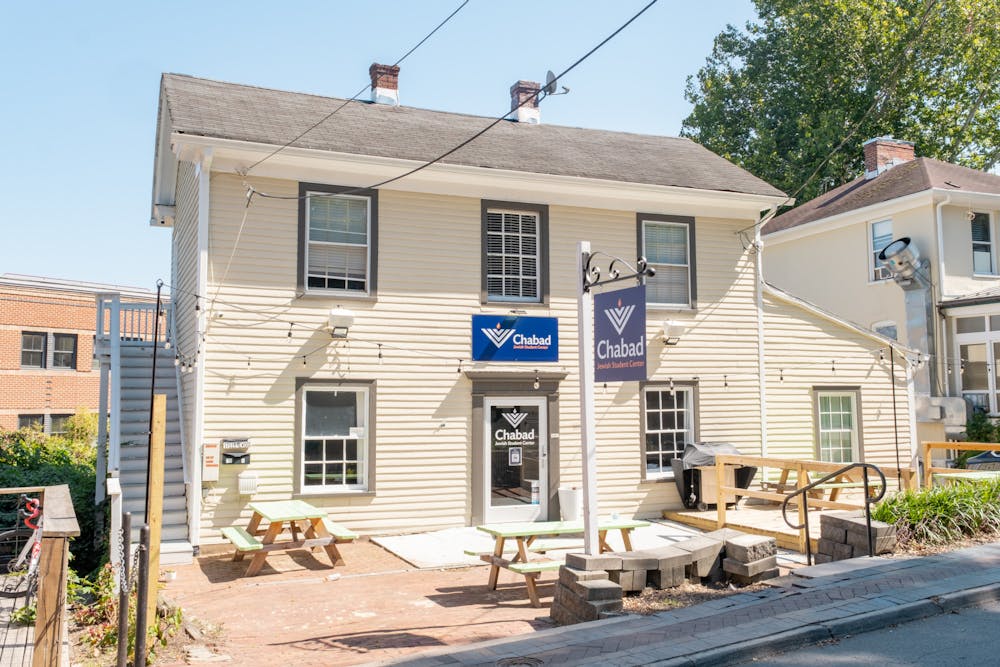When residents of the University of California at Berkeley’s chapter of Alpha Epsilon Pi woke up last week, they were met with hundreds of shellfish strewn across and thrown through the windows of their property. With good reason, the members of the Jewish fraternity initially thought this act was a hate crime — consumption of shellfish is strictly prohibited under Jewish law, the vandalism took place on the first Shabbat of the semester and UC Berkeley has a history of antisemitism. A couple days later, though, the student responsible said it was an ignorant prank, not a calculated act of antisemitism — a position that was later confirmed by a spokesperson for the Berkeley Police Department. The brothers of AEPi, though, said it best — ignorance does not excuse antisemitism. The mere fact that the vandal did not know better does not erase the antisemitic implications of their harmful actions. As acts of antisemitism increase on college campuses and Jewish students continue to share that they feel unsafe at their schools, acts like the one at UC Berkeley must prompt larger discussions about the need for universities to redress the pervasive legacy of antisemitism.
This work is especially important at the University — the legacy of antisemitism is deeply embedded in its history. In 1841, the University hired James Joseph Sylvester and became the first school in the United States to hire a Jewish professor to teach a secular subject. After only four months, though, Sylvester left the University because of the harassment and violence he received from students— it took eighty more years for another Jewish professor to be hired. In 1862, the first Jewish student, Gratz Cohen, arrived at the University. Despite adhering to the University’s confederate culture and serving as president of the Jefferson Society, the letters he sent home were about the antisemitism he witnessed. In 1927, after more Jewish students were admitted, the Dean of the College of Arts and Sciences said that “some limit” would have to be set on the number of Jewish students admitted to the University. With its history of institutionalized racism and sexism, the fact that the University also served as a hotbed of antisemitism may be unsurprising, but past circumstances must inform how we understand our present reality.
Sadly, antisemitic events continue to occur on Grounds. The Unite the Right Rally in the summer of 2017 was a horrific attack on Jewish people, with demonstrators marching down the Lawn screaming, “Jews will not replace us.” Even more recently, opinion columnist Dan Freed argued that the University failed its Jewish students by neglecting to issue a University-wide communication after a welcome sign was stolen from the Rohr Chabad House at U.Va. Many students only knew about the incident because of an Instagram post from the organization. While Student Affairs did work with Chabad House following the incident, the University never publicly acknowledged that the theft had occurred. Jewish students are too often the only ones advocating for themselves — the University’s failure to speak on the issue only further proves this.
Today, many Jewish first years are still forced to live on Alderman Road, which is named after a former University president who was also the leader of the eugenics movement at the University. There are no institutional dedications to Professor Sylvester. If you Google “jewish history at U.Va,” the Jewish Studies department and the Corcoran Department of History will pop up. What is missing from this page is any history about Jewish students, faculty or culture at the University. The University community must face this lack of acknowledgement head on and begin to memorialize the Jewish voices that have helped to shape the University into the institution that it is today. One way we can begin this work is through leveraging the University Guide Service — by centering Jewish stories on historical tours, students can play an active role in helping the University transcend its legacy of antisemitism.
By not taking steps to mitigate the ways its problematic past contributes to present day injustices, the University creates spaces for antisemitism and effectively preserves its legacy of bigotry and hatred. The University should not just strive to preserve a holistic account of Jewish history and protect Jewish communities on Grounds, but it should also strive to create an environment in which Jewish students can thrive. UC Berkeley has Jewish student organizations, like AEPi, that foster a sense of belonging — likewise, the work of University student groups like Chabad House and The Brody Jewish Center are much appreciated as they create spaces for Jewish students to feel safe, included and welcome. These safe spaces at both universities, however, do not actually guarantee feelings of security for all Jewish students. Without institutional action, a legacy of antisemitism will persist in whatever environment it is allowed to — the University must not be that environment.
Mikayla Havison is an Opinion Columnist who writes about University life for The Cavalier Daily. She can be reached at opinion@cavalierdaily.com.







